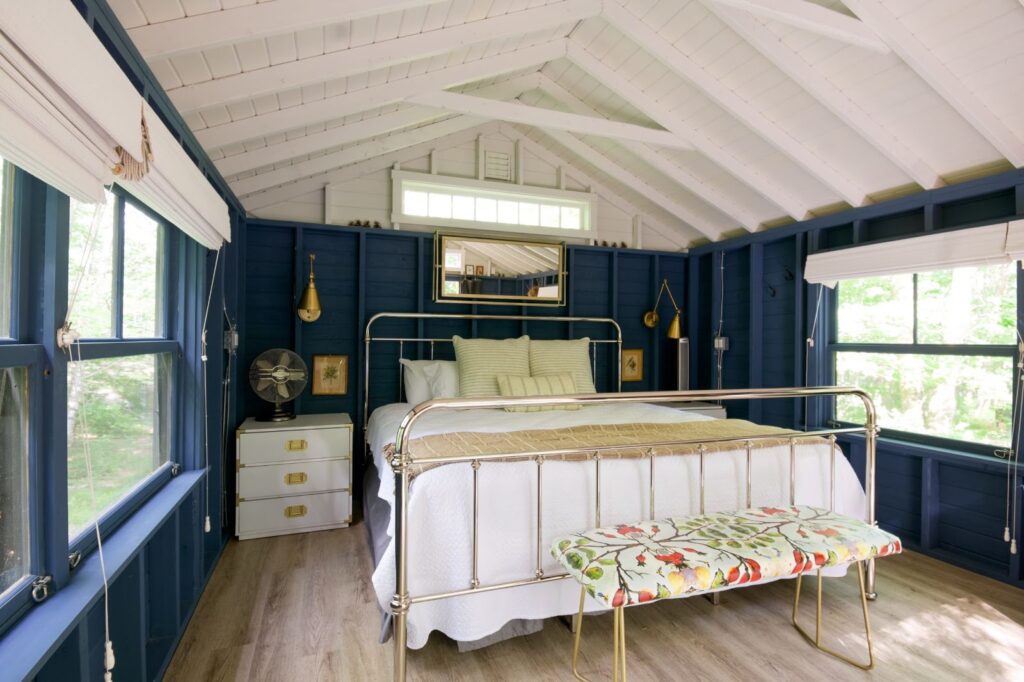It costs money to make money. And running your Airbnb business is no exception. You have to account for cleaning costs, maintenance expenses, supplies, and listing improvements. While it seems like these expenses can add up, they may be beneficial when it’s time to file and pay your Airbnb taxes. Operating an Airbnb can offer some tax benefits that can help you save money on your tax bill.
How does hosting on Airbnb help with taxes?
The IRS wants you to report all income and wages, including any income you earn from hosting on Airbnb. Even if you only host part-time, you need to report these earnings. When you report income and wages, you naturally increase your taxable income. This may leave you vulnerable to a tax bill that’s much higher than expected. However, there are some ways to mitigate this.
For starters, you can take advantage of the 14-day rule, which allows you to refrain from reporting earnings if you host less than 14 days a year. You can also keep track of all business-related expenses, which you can use as valuable tax deductions as you prepare and file your taxes. Another strategy for saving on Airbnb taxes is to file a W-9 with Airbnb. Without a W-9 on file, Airbnb could withhold too much from your payouts.
What is the 14-day rule on Airbnb?
The 14-day rule is also known as the Master’s Rule. Homeowners in Augusta, GA used to rent out their homes for the 14-day Master’s Golf Tournament, often generating a substantial sum of rental income. This 14-day rule creates a loophole for short-term rental income. Today, Airbnb hosts can still take advantage of this loophole if they do the following:
- Rent out their property for 14 days or less
- Use the property themselves for 14 days a year or at least 10% of the days it was rented to others.
For example, if you had a beach house and rented it out on Airbnb for 13 days, and then stayed there for 15 days, you wouldn’t need to report that income. In short, if you don’t rent out your property too often, the 14-day rule is a legitimate way to avoid paying taxes on your short-term rental income.
What expenses can I write off for my Airbnb?
Write-offs, or tax deductions, are a valuable way to lower your Airbnb taxes. Tax deductions help lower your taxable income, which in turn lowers the amount you owe in taxes. If you determine you have ongoing business expenses necessary for your business to function, you may write those expenses off. These include, but are not limited to:
Cleaning
Every time a guest checks out, you have to clean your listing. You may do this yourself, or you can hire a professional. Either way, cleaning expenses qualify as a deductible expense.
Maintenance
Consider expenses for landscaping and maintaining a home. These costs are ongoing and necessary.
Repairs
Your things wear down over time. The cost of repairing or improving your listing is tax-deductible, which can benefit your business.
Supplies
Whether you need office supplies, cleaning supplies, towels, or snacks for guests, these are all necessary to your Airbnb business.
Marketing
Expenses like flyers or online marketing are tax-deductible.
Professional Fees
If you hire a professional photographer to photograph your listing, you can deduct this as well.
Subscriptions
Do you have a Netflix subscription for your guests? Do you offer up-to-date newspapers or magazines? These subscriptions are tax-deductible.
Utilities
You can deduct a portion of your utilities as a business expense, including WiFi.
Rent or Mortgage Payments
Just like utilities, you can deduct a portion of your rent or mortgage payment.
Home Office
If you have a home office to manage your business, the IRS allows you to deduct $5 per square foot for up to 300 square feet. Keep in mind that this must be a dedicated space, usually with a door that separates the room. A portion of your kitchen table would not count.
Travel expenses
Traveling to and from properties? Business-related travel expenses are tax-deductible.
You should track all of your business expenses as a part of your accounting process. Be sure to keep proof of these expenses with either receipts or digital files. When it comes to tax deductions, a paper trail is crucial to keep on hand.
Should I file a W-9 for my Airbnb?
You can end up saving money on your Airbnb taxes by filing a W-9. Airbnb is required to withhold 28% of your payout if you do not file a W-9. A W-9 confirms your taxpayer information like your name, social security number or taxpayer ID, and any other information about exemptions. If you don’t have a W-9 form on file with Airbnb, they could withhold too much from your pay. If they withheld too much, you would receive a refund when you filed your taxes at the end of the year. However, some taxpayers prefer not to wait to see their tax savings.
Final Thoughts
It’s important to have the right tax strategy when it comes to your Airbnb taxes. This will not only help you save on your tax bill, but it will also help you grow your business and plan for your future. For example, by filing a W-9, you are entitled to receive the maximum payout from your earnings. This can allow you to invest the money back into your business and maximize your IRA, which can provide some additional tax savings.
Get Help With Your Airbnb Taxes
Being self-employed can complicate your tax situation. You need to have a good accounting system in place to track and categorize all of your expenses properly. This will ensure that you capitalize on all of the deductions available to you and do so legitimately. Schedule a strategy session with one of our Airbnb tax and accounting experts today. For even more Airbnb tax tips, subscribe to our newsletter using the form below.

